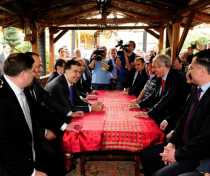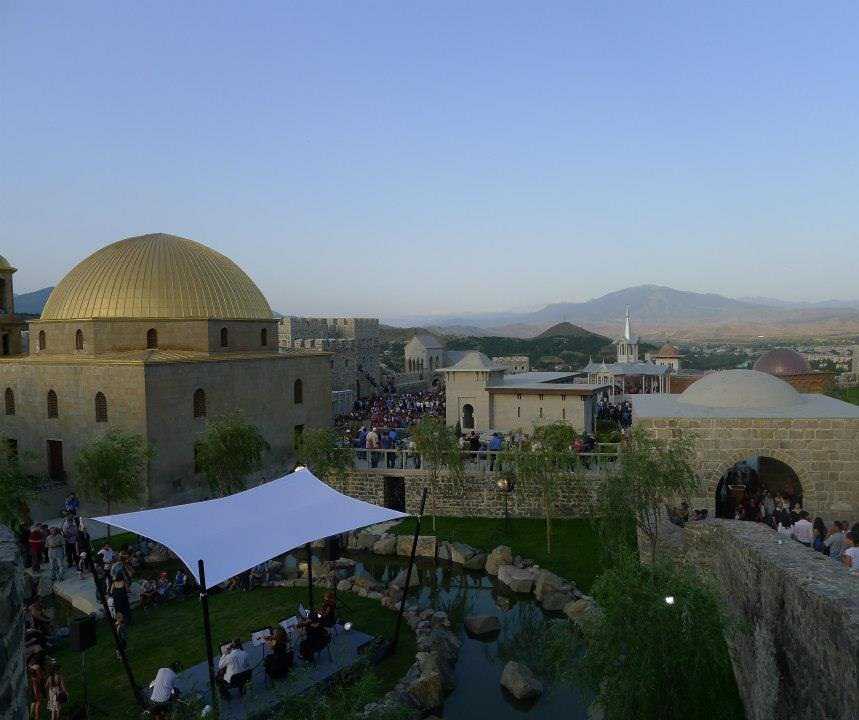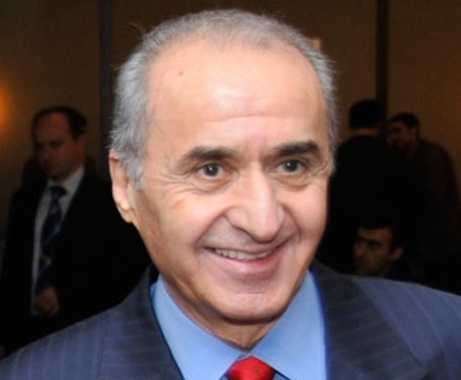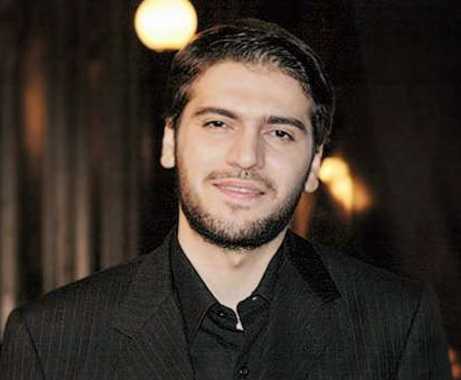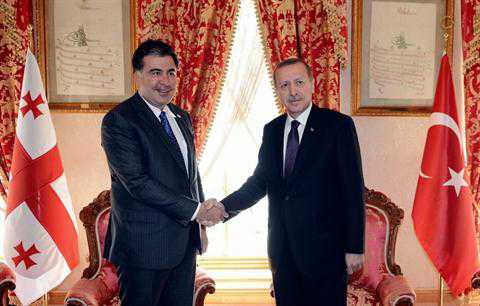
In this photo released by the Turkish Prime Minister’s Press Office, Turkish Prime Minister Recep Tayyip Erdogan, right, and Georgian President Mikhail Saakashvili shake hands before a meeting in Istanbul, Turkey, Saturday, April 6 , 2013. (AP Photo/Kayhan Ozer, Turkish Prime Minister’s Press Office)
TBILISI: Georgian President Mikheil Saakashvili has suffered multiple shoulder fractures after a bicycle accident while on a state visit in Turkey, his office said on Monday.
“The president has suffered an injury during his daily bicycle workout and was diagnosed with a triple fracture of the shoulder,” his office wrote in a post published on the Georgian leader’s Facebook page.
According to the statement, which did not give details of Sunday’s accident, Saakashvili has undergone surgery for his injuries at an Istanbul hospital.
It was not immediately clear if he had been released from hospital.
Due to the accident, the president’s schedule for Monday — a dinner meeting with his Turkish counterpart Abdullah Gul — was pushed back to Tuesday, after which he is due to leave Turkey.
On Saturday, Saakashvili met with Turkey’s Prime Minister Recep Tayyip Erdogan.
Georgia’s key regional ally Turkey supports the ex-Soviet republic’s bid to join the North Atlantic Treaty Organisation (NATO) — an ambition strongly opposed by its former imperial master Russia.
The neighbouring Black Sea countries also share economic interests in promoting the transit of Caspian gas to Europe via a pipeline bypassing Russia.
Saakashvili is due to step down from his post in October when his second and final presidential term expires.
via Georgia leader breaks shoulder during Turkey state visit | News , Middle East | THE DAILY STAR.

